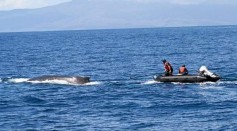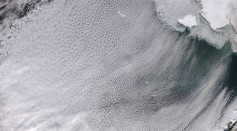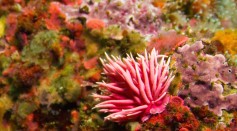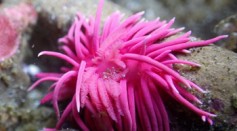ocean
How the Oceans Could Be Our Salvation from Global Warming
Carbon Dioxide Caught Red Handed By Scientists

Humpback Whale Freed From Entanglement Along Hawaiian Coast
Reef Oasis Found in Depths of Murky Iraqi Waters
Leave it to the Limpets—Researchers Find New Strongest Natural Material On Earth

VIDEO—How Antiquated Technology May Reveal the Secrets of Titan’s Seas

Can You Fathom the Trash? New Study Reveals Eight Million Tons of Plastic Trash Reach the Oceans Each Year
A Race Against the Clock—Volunteers in New Zealand Try to Save Stranded Pilot Whale Pod

NASA Satellite Reveals ‘Cloud Streets’ Over Bering Sea

When Roses Bloom in Northern California, Researchers Take Notice

Is Climate Change To Blame for These Blooming Pink Nudibranchs?

Scientists Discover Life 2,500 Feet Below Antarctic Ice

VIDEO—Jellyfish Reveal A Knack for Global Positioning & Swimming in New Study

Revealing the Swimming Secrets of the Ageless, Brainless Jellyfish
Most Popular

Tapeworm in Brain Found To Be Culprit of Man's Severe Migraines; Eating Undercooked Bacon, Not Washing Hands Properly Could Be To Blame For Infection

RSS Tool "Saber" Set to Revolutionize the Oil and Gas Industry

Pink Moon Will Be Visible During Lyrid Meteor Shower; Here's the Best Time to Watch It
![Earth's Quasi-Moon Kamo‘oalewa Could Originate From Lunar Surface Not Asteroid Belt [Study]](https://1721181113.rsc.cdn77.org/data/thumbs/full/53275/89/56/50/40/earths-quasi-moon-kamo-oalewa-could-originate-from-lunar-surface-not-asteroid-belt-study.png)
Earth’s Quasi-Moon Kamo’oalewa Could Originate From Lunar Surface Not Asteroid Belt [Study]





